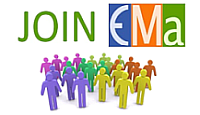Program

The list of topics and lecturers for ESM 2022 are in their final form.
Lectures
Introduction to the School (1h)
- Opening
- Motivation for the School and assembly of project teams: Leon Abelmann, Saarland University, Germany
I. Basic concepts (16h30)
- 1 - Fields, magnetostatics, units [3h - Slides pt1 ; pt2 | Recording pt1 ; pt2 ]: Stephen Blundell, Oxford, UK
- 2. - Magnetism on the single atom [1.5h - Slides | Recording ]: J. Michael D. Coey, Dublin, Ireland
- 2. - Exchange interactions, ordering and magnetic structures [3h - Slides | Recording ]: J. Michael D. Coey, Dublin, Ireland
- 2. - Crystal electric field, Spin-orbit, magnetic anisotropy, DMI [1.5h - Slides | Recording ]: Stephen Blundell, Oxford, UK
- 3. - Domains, domain walls, the micromagnetism theory, nanomagnetism, LLG and precessional dynamics, spin waves [3h - Slides part1 & part2 | Recording ]: Claire Donnelly, Dresden, Germany
- 3. Magnetization reversal in materials [1.5 - Slides | Recording ]: Claire Donnelly, Dresden, Germany
- 4. Spintronics: from (magneto)transport to STT [3h - Slides part1 & part2 | Recording ]: : Aurélien Manchon, Marseille, France
II. Functions for sustainable development (10h30)
- 5.1 - Magneto-caloric materials and applications [1.5h]: Victorino Franco, Sevilla, Spain
- 5.2 - Magnetic materials [1.5h - Slides | Recording ]: J. Michael D. Coey, Dublin, Ireland
- 5.3 - Electric motors and generators [3h - Slides | Recording ]: Johan Paulides, Advanced Electromagnetics
- 5.4/5.5 - Data storage and (low-power) computing (incl. Neuromorphic) [3h - Slides | Recording ]: Tom Thomson, Manchester, UK
- 5.6 - Magnetism for biology and medicine [1.5h - Slides | Recording pt1 ; pt2 ]: Nora Dempsey, Grenoble, France
- 5.7 - Magnetic sensors [1.5h - Slides | Recording pt1 ; pt2 ]: Cristina Gomez Polo, Navarra, Spain
III. Career perspectives (4h30)
- Round-table: career development [ Slides | Recording ]
- 6.1 - Working in industry [1.5h - Slides | Recording ]: Johannes Paul, Sensitec
- 6.2 - Starting your own company [1.5h - Slides | Recording ]: Johan Paulides, Advanced Electromagnetics
Student projects
Overview
Students work in teams of around 8, with teams formed ahead of the school through a dedicated chat, an onsite during a match-making event on the first day of the school. Each team is coached by a mentor (an ESM lecturer). Each team will tackle a problem involving a schallenge for sustainable development, to be solved by Magnetism. The activities employed can range from literature studies to practical implementation. The output will be a presentation. See details on the projects, and examples of possible topics.
The question to the students is how magnetism can be used to solve key societal challenges. A good starting point is the list of societal challenges formulated by the EU:
- Health, demographic change and wellbeing;
- Food security, sustainable agriculture and forestry, marine and maritime and inland water research, and the Bioeconomy;
- Secure, clean and efficient energy;
- Smart, green and integrated transport;
- Climate action, environment, resource efficiency and raw materials;
- Europe in a changing world - inclusive, innovative and reflective societies;
- Secure societies - protecting freedom and security of Europe and its citizens..
Practical organization
There are several slots in the agenda (see above the timetable):
- Elevator Pitches: Suggestions for projects by participants
- Market: Self-assembly of project groups in lobby and online
- Kick-off Mentor meeting: Research question, plan, roles, planning
- Progress Mentor meeting: Results, things to do
- Feedback 10 minute presentation for subgroup of 3-4 teams, feedback 15 min
- Soundcheck Mentor meeting: Polish slides
- Presentation 10 minute presentation entire school, 5 min questions
Other activities
Practicals (4-8h)
This year, the school will feature a one day visit to the laboratories of either the University of Kaiserslautern, or the Lorraine University. There, you will get hands-on experience with advanced measurement techniques. Attendees will be asked on-site for their wishes to attend such or such practicals.
Tutorials (2-8h)
Blackboard tutorials are organised in small groups, 20 attendees or below, with duration typically 2h. These are intended to practice the knowledge covered in the academic lectures. The following tutorials are proposed during ESM2022:
- Micromagnetics of domain walls: Olivier Fruchart, Grenoble, France.
- Physics of spin injection: GMR, TMR and STT: A. Manchon, Marseille, France.
- Modeling ferrimagnetism: O. Isnard, Grenoble, France.
- Electromagnetic simulations using finite element methods: T. Hauet, Nancy, France.
- Analysis of magnetization curves: O. Isnard, Grenoble, France.
- Calculation of magnetic fields (analytics): L. Abelmann, Saarbrücken, Germany.
- Units in Magnetism: O. Fruchart, Grenoble, France.
Library
A library consisting of a large set of books dedicated to various aspects of Magnetism is on display during the entire School. Its purpose is first to get students aware of the existing books, get acquainted with their use, and also serve as a support for activities during the School.
Question-Answer sessions (5-10h)
The purpose of a research School is to provide young scientists with the basics in a working field. With this respect interactivity between students and lecturers should be promoted. Like in the previous editions, a key aspect of this interactivity is the possibility to raise questions at the end as well as during the course of the lectures. Besides, several sessions of questions take place, during which the lecturers or voluntary students present in more detail issues raised by the students during the lectures or anonymously through a question-box. See all questions raised in 2022.
Posters
We encourage participants to bring posters to present their work. Poster will be displayed at all times during the school, plus with dedicated poster tims slots. Students are also asked to present their poster in a one-slide teaser as an exercice to summarize their work. Several poster prizes will be awarded, including a voucher for free attendance to the next Joint European Magnetism Symposia conference.








